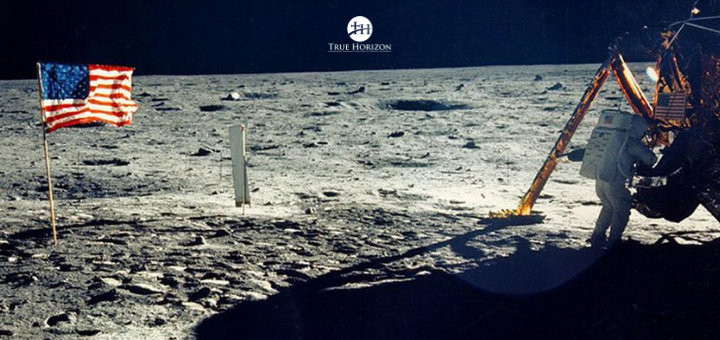A Reasonable Explanation For Reason Itself
Where do reason and logic come from? Can your brain explain everything about how you think? Is it just a moist computer or are there differences between the physical brain and the mind? Do we have evidence for the existence of a non-physical soul?
Think about it (pun intended). The fact that we can have a discussion about morality — or about anything at all — means we have the capacity to consider alternative ideas. Ideas are not physical things. So, how can we do that?
Physical Brain, Non-Physical Self
The neurons that make up our brains are physical things. They send electro-chemical signals back and forth. This allows us to think about concepts and ideas. But concepts and ideas are not physical things. You can’t touch them or weigh them. How do physical neurons allow us to access non-physical things? How do we explain “intentionality” or free will?
We all know and experience a direct awareness of our “self.” We know we exist because we experience the physical realities of the world. But how? What is it that is having these experiences? Sure, we can see, taste, touch, hear, and smell. But that doesn’t explain the experience. Neurons allow us to do these things. But neurons don’t explain my experience of “me.” My “self” is something a that a purely physical universe cannot even begin to explain.
Materialistic atheism insists that the physical stuff that makes up the universe is all there is. Matter defines “reality.” But it turns out we have scientific evidence to the contrary.
Continuity of Personhood
We learn from biology that the cells that make up our bodies constantly die off and get replaced. In fact, some types of cells only last a couple of days at a time. But this means that over the course of your lifetime the cells in your body get replaced every 7 years on average. Yet, we all recognize that though we may grow older and slower, we are the same person we’ve always been. There is something about “us” that always stays the same even though our physical bodies are always changing. In other words, “you” cannot the same as your physical body.
The Mind-Body Problem
We also recognize that our thoughts about things are not, and cannot be, the same as the things themselves. Yes, it’s weird, but think about some childhood memory of your mother. Can you picture what she’s wearing; what she’s saying; what you’re doing? Of course you can. But you also realize that we cannot crack open your skull right now and see the picture you are seeing. The picture is not in your brain. The physical reality of the event you are remembering is different from the picture you “see” in your mind. Thoughts, memories, ideas, and concepts are all real things that match the real world. But none of them are physical.
Mind-Body Causation
Fancy term, amazing evidence. Obsessive-compulsive disorder (OCD) is a debillitating mental disorder. But scientists who study it have discovered an amazing fact about how to treat it. The strategy is simple. Doctors teach patients to control their OCD by changing their thoughts. When they feel compelled to repeat a habit, they stop themselves. They do something different. The amazing part is the result. Doctors have found that patients not only change their habits, they can also change the physical structure of their brains.
Let that sink in. Repetitive, deliberate, non-physical thoughts can change the physical makeup of your brain. No drugs, chemicals, surgery, or any other kind of physical contact required. How is this possible? I don’t know. But the scientific evidence tells us it is.
Near Death Experiences
Here, I am not talking about the silly “I went to heaven but came back to write this book” stories. I have no theological or psychological reason to believe any of them. Most of those stories are fraudulent. What I am talking about is the hard evidence from rare events where a doctor pronounces a patient dead. Flatlined. Then something weird happens. The patient recovers. When they do, they describes scenes, conversations, or events that occurred in other places while they were dead.
Evidence For The Soul
These four phenomena provide direct evidence for the existence of the soul. Philosophers call this “dualism.” Dualism is the view that human beings have both body and soul. The body is physical. The soul is not. On this way of thinking, the mind is a subset of the soul. Here’s why they say that.
Scientists can attach electrodes to your brain. They can locate and measure electrical impulses firing in your neurons. They tell you to do things and then see which part of your brains lights up when you do them. In this way, they can correlate an area of the brain with the physical action you are taking. But here’s the thing. They could never identify what you are thinking … unless you tell them.
“You” are different from your physical brain.
Actions and electrical impulses in the brain correlate to one another. But correlation does not equal causation. We have no idea how the mind can cause things to happen in the brain, or vice-versa. We may never understand how the body and soul interact with one another. But the fact is that we have evidence which demonstrates that they do. The question is, “how do we account for the existence of the non-physical soul?”
Theism Predicts And Explains The Soul
Remember what we are trying to do in this series of arguments. We are making the case for a theistic God — a God who exists and interacts with the universe we live in. Atheist materialists who believe that we are nothing but biological machines. But if that’s true, they have no way to explain the reality of an immaterial soul.
But theism offers a coherent explanation in God himself. A non-physical, mind-possessing agent like God is perfectly capable of creating creatures who share the same kind of mind.
Matter cannot create non-matter. But an infinite mind can easily produce finite minds.
God gave us mind and soul. He expects us to use them properly.
These resources give great explanations and evidence for the soul. I highly recommend the two books listed. They are both fascinating and compelling.
Videos
William Lane Craig’s short summary of reasons to believe in the existence of the soul
J. Warner Wallace’s interactive case for how consciousness points to theism
A secular case for dualism
The evidence in this video for dualism is outstanding. The conclusion, however (that the universe is a all mind and that the physical world is an illusion) is not only parallel to the monistic views of Hinduism and Buddhism, but is also obviously flawed.
Books




